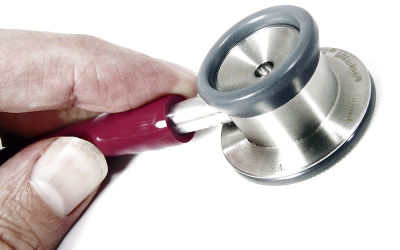If you are a watch lover who wants to have a high-quality replica watch but don't want to spend too much money,
www.watchesreplica.to will be your best choice.
In 2007, an estimated 7 million Medicare Prescription Drug Plan beneficiaries will hit the coverage gap, called the doughnut hole. Hitting the doughnut hole can have very serious health consequences for seniors. In fact, it can even potentially result in death. Shockingly, a 2006 study published in the New England Journal of Medicine called, “Unintended Consequences of Caps on Medicare Drug Benefits”, found that drug plans with a cap on drug coverage (as is the case with the doughnut hole in the Medicare Drug Plan) have an annual death rate that is 22% higher than plans that do not limit drug benefits. This study also found that individuals whose benefits were capped were less likely to adhere to their long-term prescription drug therapies once they reached the coverage cap. This non-adherence to drug therapies led to significant increases in hospitalizations and emergency room visits. A new, free report called Medicare Doughnut Hole Facts and Secrets reveals to seniors exactly what the doughnut hole is and how it can affect them. This report also explains to seniors how they can continue to obtain their medications afford ably once they have hit the doughnut hole. By showing seniors where and how to obtain affordable medications while in the doughnut hole, this report will help seniors to avoid the adverse, and potentially very serious, health consequences of falling into the Medicare doughnut hole. With hundreds of thousands of seniors having already hit the doughnut hole this year, and with millions of seniors about to hit the doughnut hole in the next couple of months, it is critical to get this report into... read more
About AARP Medicare Complete, Its Benefits, and the Enrollment Period. For decades, AARP, a government-sponsored health insurance plan for senior citizens has been guaranteeing maximum benefits for the elderly, and this is why many people opt for the AARP Medicare Complete program. What is there to know about this policy? AARP Medicare Complete (Part C) is run by the federal government and underwritten by the United Healthcare , but administered through a non-governmental body (insurance companies), and thus there may be potential greater benefits. Medicare Advantage Plan is a Medicare Plan Part D (medical prescription drug coverage or AARP Medicare Rx Plan ) and in order to qualify for it, the insured party must have Medicare Parts A (hospital insurance) and B (medical insurance). This program usually has networks of doctors and hospitals that belong to the plan, and you are required to see them. There are four types of AARP Medicare Complete plans to compare from: HMO (Health Maintenance Organization) plan typically requires that you select a Primary Care Physician and you receive services from a network of local doctors and hospitals, except for the emergency room and renal dialysis service. Some of the plans also cover Part D and extended preventative assistance. Out-of-pocket costs are usually lower than with POS and PPO (which will be detailed below). The POS (Point-of-Service) plan is rather similar to the HMO plan, but it is more flexible, offering the possibility to visit doctors and hospitals outside the network for certain services. PPO (Preferred Provider Organization) allows you to choose any doctor or hospital both inside and outside the network for all... read more
Humana Insurance offers a Medicare Prescription Drug Plan that it contracts through the Federal government. This PDP Summary of Benefits chart shows you a few features of the Humana Complete Medicare plan. To obtain a complete list of benefits please contact Humana Complete (PDP) and ask for the “Evidence of Coverage”. Humana Complete is Humana’s most comprehensive Medicare Part D prescription drug plan to date. The monthly premium for Florida Medicare beneficiaries clocks in at around $100 a month. You can join Medicare Part D plan if you have or are eligible for Medicare Part A and/or enrolled in Medicare Part B and live in a provided area. There is no deductible for drugs on this Part D drug card. Another available plan to get your prescription drug coverage is a AARP’s Medicare Complete Medigap or AARP Medicare Rx Plans that includes prescription drug coverage. You can use this guide to compare coverage and then make and informed choice. Humana Complete Medicare PDP Summary of Benefits Plan Type PDP Annual Deductible $0 Out-of-Pocket Maximum None Prescription Drug Coverage Yes Prescription Drug Deductible None Retail Pharmacy for Prescription Drugs Preferred Generic You pay the following until total yearly drug costs reach $2,930: – $6 copay for a one-month (30-day) supply of drugs in this tier from a preferred pharmacy; – $18 copay for a three-month (90-day) supply of drugs in this tier from a preferred pharmacy. Non-Preferred Generic You pay the following until total yearly drug costs reach $2,930: – $39 copay for a one-month (30-day) supply of drugs in this tier from a preferred pharmacy; – $117 copay for a three-month (90-day) supply... read more
Whole life Insurance, or permanent life insurance, is a life insurance policy that remains in force for the insured’s whole life and requires yearly premiums to be paid into the policy. Whole life insurance gives the policy holder a guaranteed death benefit with a cash value that builds up with a percentage of the yearly premiums paid, plus interest. But because whole life insurance has a guaranteed death benefit that is paid out to each policy holder eventually, they need to charge a higher premium to ensure that the insurance company continues to make a profit. Whole life insurance companies can charge as much as 30% overcharge which translates into pure profit for the company, but policy holders have the peace of mind knowing that their monthly payments are being accrued in part for a hefty death benefit in the end. Types of Whole Life Insurance In the United States there are five types of whole life insurance policies which will vary by rate and benefits. These include non-participating, participating, indeterminate premium, economic limited pay, and single premium. Each of these is explained below. Non-Participating Non- participating is a whole life insurance policy that has the death benefits, premiums and cash surrender values all determined at the initial signing of the contract. This means that once you lock into the contract nothing can be altered for the life of the agreement. The benefit, or potential drawback of this agreement, is that insurance rates cannot be raised, even if market prices are going up. But at the same time if the market lowers the insurer is stuck paying the higher... read more
Are you turning 65 in the next year? It’s time to consider your Medicaid options. Here are the facts: At age 65, you are automatically enrolled in Medicare Part A, hospitalization coverage, which is free, and Part B, which covers lab fees, physician’s fees and medical equipment. There’s a premium for Part B. If you want additional benefits, though, you will need to specifically opt into a Medicare Advantage plan (part C), and or a prescription drug plan (Part D). Medicare Advantage In addition to the basic Medicare benefits, Medicare Advantage plans may also provide additional benefits, such as dental, vision, expanded hospitalization benefits, or more focused care for those with special medical needs, such as diabetics. Premiums vary, depending on your plan and location. You can’t be turned down for Medicare Advantage, but you may have to pay extra if you don’t sign up when you’re first eligible. Note: Don’t get Medicare supplemental coverage if you already have a Part C plan. You don’t need both kinds of coverage – just one or the other. Some things to keep in mind: You can only enroll during your open enrollment period, during certain times of the year. Once you enroll, you stay in the plan for a year. Different plans cover different procedures and treatments. Look at their list of exclusions, or check with the plan before getting a treatment or service. Managed care plans typically come with a list of authorized providers. If you have a preferred physician or other care provider, consult your plan network to ensure your preferred provider is a member of the network. You... read more
Many employers are implementing 401(k) matching programs again. In recent years, matching was greatly reduced or eliminated in most businesses. While many are reinstating their matching programs, there are many who still have not started yet. In addition to this, some employers are matching at a lower percentage rate. Research shows that about 75 percent of employers that stopped matching have restored their plans. From this group, about 75 percent have implemented matching plans at the same rate they used before. Less than 5 percent increased their rate. Almost 25 percent lowered their percentage rate. It’s apparent that many employers want to reinstate their plans only when they can afford to do so. Since their ability to reinstate is dependent upon the economy, it’s difficult to predict when that will happen for each individual company. It’s no surprise that defined contribution plans that lack matching offers have a considerably lower rate of participation than plans that offer matching. This is likely the root of the many problems employers will face in the future when their older employees retire without saving enough money in an efficient and timely manner. Research shows recent workforce statistics suggesting that approximately 40 percent of working Americans are 55 or older. This is a significant increase from the statistics gathered 20 years ago. When this recent statistic is considered from a financial point of view, it shows that older workers are likely to be less engaged in their work and are more expensive in general. Many of them may be staying at their jobs because they have to do so in order to collect retirement... read more
In today’s world, most people are aware of the importance of a will. This document expresses a person’s wishes regarding personal property and money. Living wills have also gained popularity. They are used for expressing a person’s wishes if he or she becomes unable to make decisions for medical treatment and life-sustaining measures. However, there is another important type of will to add to the priority list: An ethical will. This type of will is not a legal document. It is a letter or informal document expressing personal values, hopes, future dreams, life experiences and blessings. The letter is shared with family members or friends while the creator is still alive. Although this idea may not sound as important at first thought, consider the following reasons to create one: It provides a way to impart wisdom. Most people find the task of writing a memoir too extensive. Editing, publishing and paying all the necessary bills associated with such a project requires plenty of time and money. An ethical will is a simple and inexpensive way to convey such important ideas. To reach a larger audience, the will can be shared at a special party, a family gathering or any other occasion. It is a very healthy exercise. Writing about life may have a positive health impact for some people. When individuals have the chance to explore their capabilities, desires and memories, they have a way to relieve stress or cope with life’s problems. Some people may even find that this positive task helps them sleep better. It draws a moral road map. Past reflections are not the only element... read more
Most Americans have private health insurance. This is a big monthly expense and one that many would prefer to do without. But what are the advantages and disadvantages of a country using this type of health care system? Read below to find out. Advantages: 1. You Choose Your Doctor In the private healthcare system you often have more flexibility in choosing a doctor as well as medical facility. For patients that want the same doctor all the time, this can be a very important advantage of this type of system. 2. Shorter Wait Times If you are having a surgery that is necessary but not life threatening, there are often long wait times. In a private health insurance system the patient will often have shorter wait times because the medical facility is less busy. And even if there are a lot of people waiting, you can often by pass the line by paying a little bit extra for faster medical attention. 3. Improved Facilities Unfortunately, because the public system is funded with government money it does not have access to as much funds as the private sector one do. This means that public hospitals and health care facilities are often overcrowded, and lacking certain comfort amenities. Private health care facilities, on the other hand, are usually well maintained, with private wards, private bathrooms, phones, TVs, and better tasting food. Disadvantages: 1. Private Health Insurance Costs More than Public Health Insurance While the US government might be saving a marginal amount of money by having a private healthcare system instead of a public one; there is no doubt that American... read more
The American Association of Retired Persons (AARP) is an organization that provides prescription drugs to the beneficiaries of Medicare at low costs. This Medicare approved organization has designed three drug plans that cover almost all brand name prescription drugs or its generic brand included in Medicare Part D. Around 60,000 pharmacies participate in the AARP Medicare Rx Plan to provide expensive prescription drugs at a reduced rate. The 3 prescription drug plans provided by AARP are AARP Medicare Rx Plus a Enhanced Plan and a Saver plan. Each of these plans includes one or more of co-payment tiers. Tier 1 includes generic drugs and has the lowest co-pay; Tier 2 has preferred brand name prescription drugs with medium co-pay; the higher co-pay Tier 3 includes non-preferred drugs; and the highest co-pay comes in the Specialty Tier. The three AARP drug plans cover the drugs that are also covered by Medicare Part D. AARP Medicare Rx Plan has mid-priced premiums, flat and simple co-pays with no deductibles. AARP Medicare Rx Plan – Enhanced has an additional bonus drug list that includes drugs not covered by Medicare Part D. This plan offers Tier 1 generic drug coverage with flat and simple co-pays and no deductibles. The only plan that has annual deductible is AARP Medicare Rx Plan – Saver. However, this plan includes the lower monthly premiums and co-pays. Other benefits of the AARP plans include discount mail order prescription services, additional assistance for low income beneficiaries, discounts on prescriptions approved by FDA, etc. The organization also offers other discount programs like discounts on vision programs, fitness programs, dental insurance and... read more
Hospice care is provided to persons suffering from terminal diseases. It could be the last stages of cancer, kidney disease or other fatal illness. Such patients require constant care administered by medical professionals. This could be the cause of great financial burden for most families. Medicare Part A services include hospice care to provide relief to the patients and their family members. Inpatient and at-home hospice care is provided by the Medicare-approved hospice. Hospice care requires the individual to possess certain qualifying criteria. Medicare Part A eligibility is a must for the seniors who require hospice care. Certification from a physician stating that the individual is terminally ill and has a life expectancy of six months or less is also needed to avail this service. The patient must sign an acknowledgment stating that what he/she wants is hospice care and not the regular Medicare services; they will not be getting any treatment coverage in such cases; for example, a cancer patient cannot get chemotherapy and hospice care covered simultaneously. Medicare Part A hospice care covers equipment and supplies required for hospice care, doctor and nurses, hospice professionals in hospitals and in home, physical and occupational therapies, speech-language pathology, medical social services, counseling services, pain and symptom management outpatient drugs, inpatient care, and other services approved by Medicare. There is also the acute short-term and respite care, and homemaker and home health aide services. You can discontinue hospice care and go back to the standard Medicare services at any time. If you want to return to hospice care after a while, you will need re-certification from the doctor. However, if... read more
Site Search:
MedicareHelp.org is a privately-owned Non-governmental agency. The government website can be found at HealthCare.gov.
Please contact Medicare.gov, 1-800-MEDICARE, or your local State Health Insurance Program (SHIP) to get information on all of your options. Enrollment depends on the plan’s contract renewal.
Every year, Medicare evaluates plans based on a 5-star rating system.









